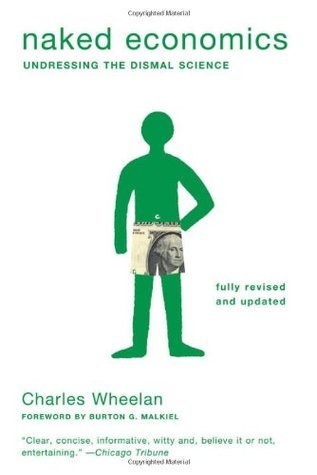What do you think?
Rate this book


260 pages, Paperback
First published January 1, 2002
" إن معظم الأفكار المهمة التي يقوم عليها علم الاقتصاد تستتر خلف مجموعة من الأغطية التي تنطوي على كثير من التعقيد، والتي متى أزحناها عنها، نجد هذه الأفكار بدهية في الأصل، وهذا هو المقصود بالاقتصاد عارياً "